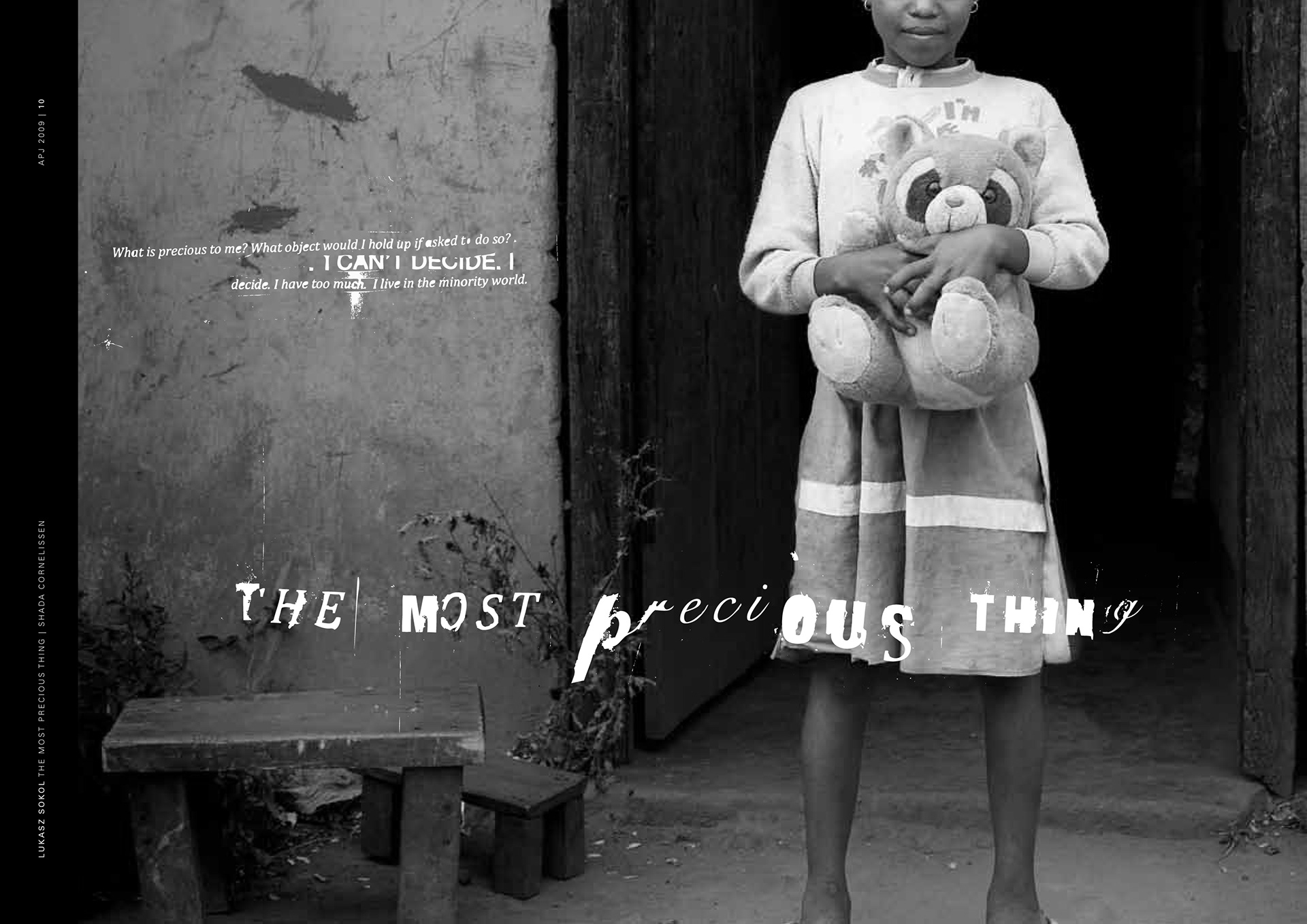
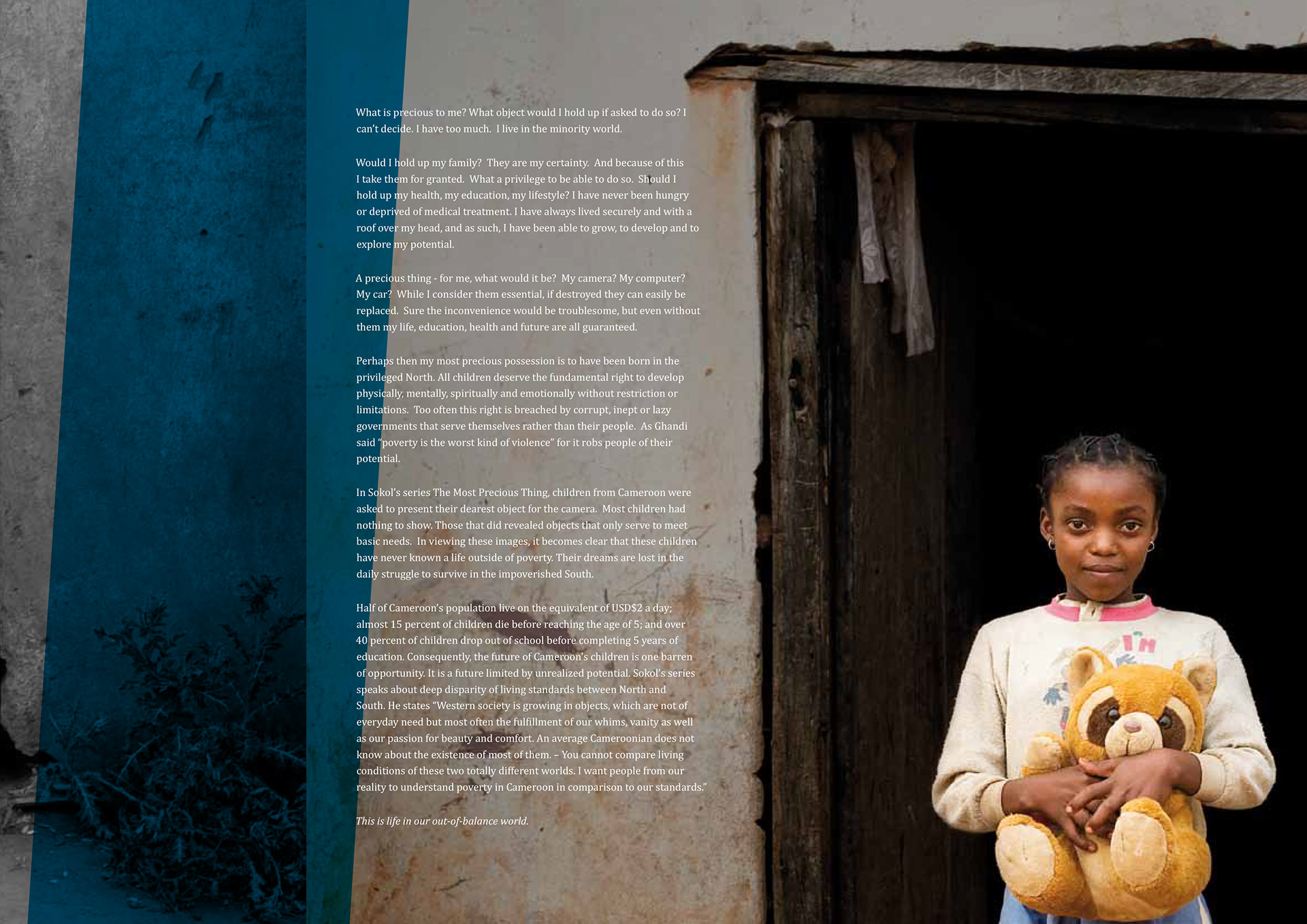
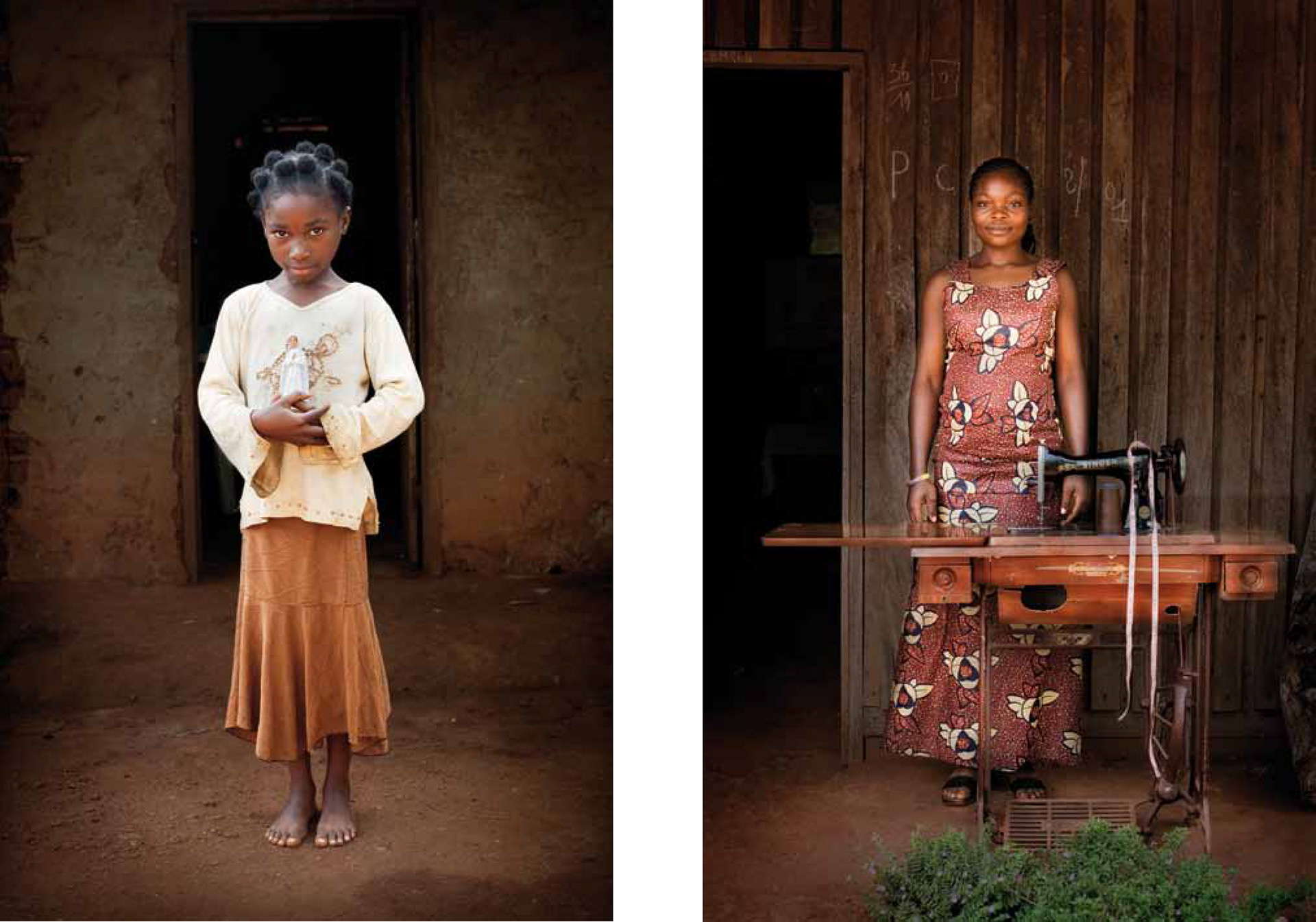
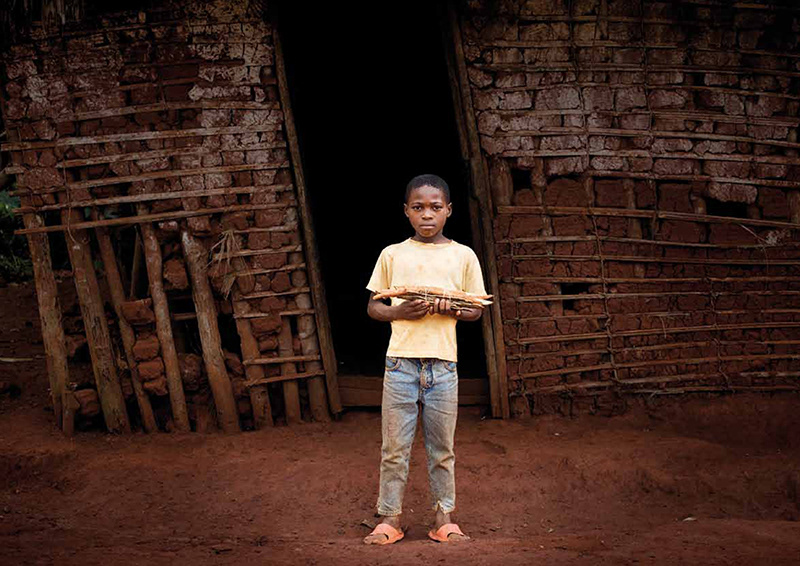
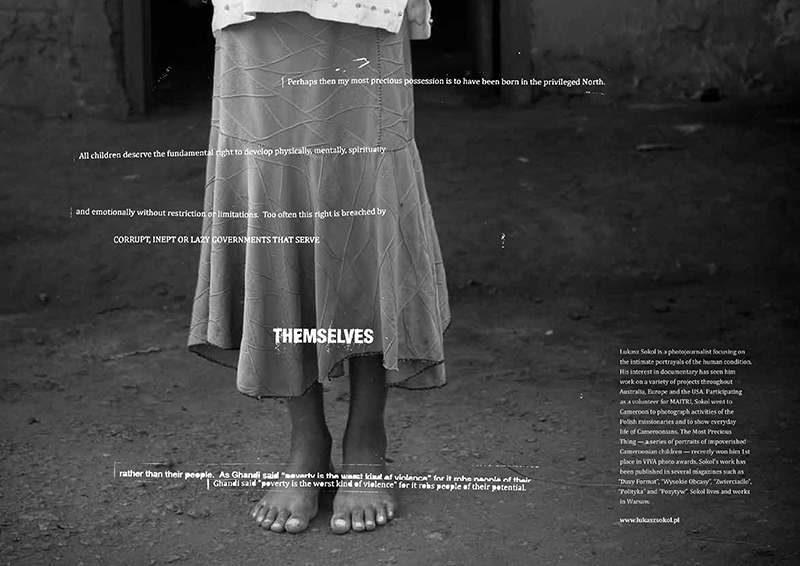
The Australian PhotoJournalist, 2010
Lukasz Sokol - The Most Precious Thing
ThingIntro by Shada Cornelissen
What is precious to me? What object would I hold up if asked to do so? I can’t decide. I have too much. I live in the minority world.
Would I hold up my family? They are my certainty. And because of this I take them for granted. What a privilege to be able to do so. Should I hold up my health, my education, my lifestyle? I have never been hungry or deprived of medical treatment. I have always lived securely and with a roof over my head, and as such, I have been able to grow, to develop and to explore my potential.
A precious thing - for me, what would it be? My camera? My computer? My car? While I consider them essential, if destroyed they can easily be replaced. Sure the inconvenience would be troublesome, but even without them my life, education, health and future are all guaranteed.
Perhaps then my most precious possession is to have been born in the privileged North. All children deserve the fundamental right to develop physically, mentally, spiritually and emotionally without restriction or limitations. (Article 27 in Convention on the Rights of the Child - http://www.austlii.edu.au/au/other/dfat/treaties/1991/4.html .) Too often this right is breached by corrupt, inept or lazy governments that serve themselves rather than their people. As Ghandi said “poverty is the worst kind of violence” for it robs people of their potential.
In Sokol’s series The Most Precious Thing, children from Cameroon were asked to present their dearest object for the camera. Most children had nothing to show. Those that did revealed objects that only serve to meet basic needs. In viewing these images, it becomes clear that these children have never known a life outside of poverty. Their dreams are lost in the daily struggle to survive in the impoverished South.
Half of Cameroon’s population live on the equivalent of USD$2 a day; almost 15 percent of children die before reaching the age of 5; and over 40 percent of children drop out of school before completing 5 years of education. (Organisation for Economic Co-operation and Development 2005 &2009) Consequently, the future of Cameroon’s children is one barren of opportunity. It is a future limited by unrealized potential. Sokol’s series speaks about deep disparity of living standards between North and South. He states “Western society is growing in objects, which are not of everyday need but most often the fulfillment of our whims, vanity as well as our passion for beauty and comfort. An average Cameroonian does not know about the existence of most of them. – You cannot compare living conditions of these two totally different worlds. I want people from our reality to understand poverty in Cameroon in comparison to our standards.”
This is life in our out-of-balance world.